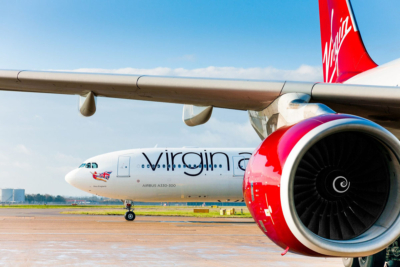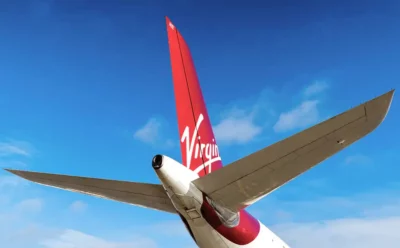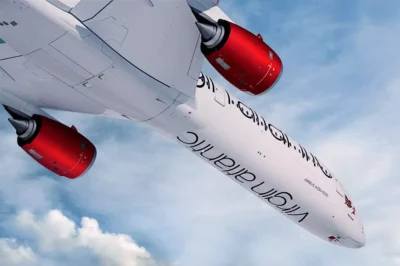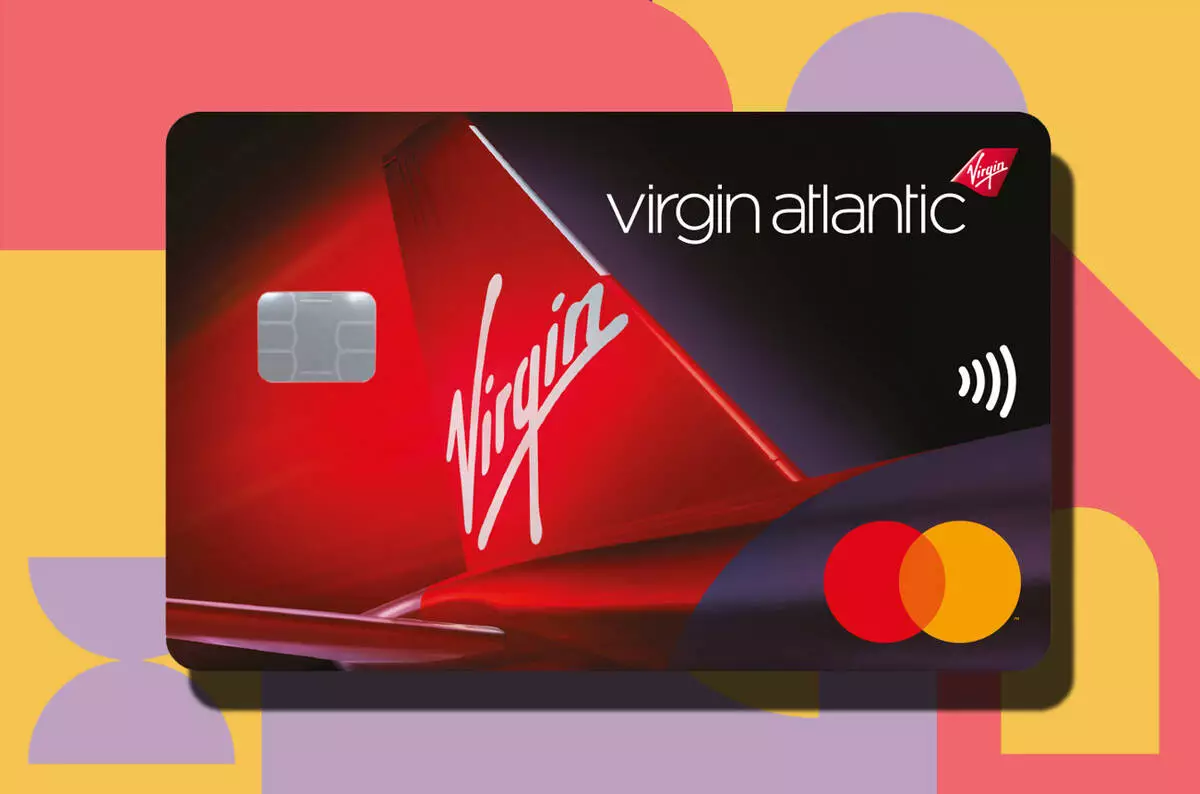What’s happening with the Virgin Atlantic rescue talks?
Links on Head for Points may support the site by paying a commission. See here for all partner links.
After a flurry of coverage in March and April, we have heard surprisingly little in recent weeks about the financial situation at Virgin Atlantic.
Sir Richard Branson recently sold part of his stake in Virgin Galactic to raise some cash, and much of that $400 million was destined for the airline. There has been no news on new investors, however.
Mark Kleinman of Sky News ran an article yesterday on the current situation. Kleinman has consistently led the way in reporting about Virgin Atlantic and Flybe, so his sources inside the airline are clearly reliable.

Who may invest in Virgin Atlantic?
Kleinman suggests that, in advance of crunch talks over which investor will be chosen, two of the leading contenders have teamed up to make a joint offer.
These are Elliott Investment Management, a US-based hedge fund, and Greybull Capital. If the Greybull name is familiar, it is from their role as the former owner of Monarch Airlines (which didn’t end well!). Other investment funds are also still in the process.
Are there any prospective trade partners?
It seems not.
We have never seen any airlines mentioned as potential investors in Virgin Atlantic.
Whilst many are blocked by their own financial problems or the terms of their own bailouts – which restrict money being used for non-core activities – this is still a little surprising.
We are not talking about billions of pounds here. It “only” requires a few hundred million. For the cost of one long haul aircraft, you should be able to buy a 49% stake in Virgin Atlantic.
If Qatar Airways wasn’t already a 25% shareholder in BA’s parent, IAG, I would have expected it to be interested. Etihad has lost more than enough money through investing in other airlines to put it off for life. Emirates would potentially have been an option.
You could also see a situation where the Star Alliance airlines had a whip round between them to invest in Virgin Atlantic. It would be on the condition that the airline joined the alliance and started to feed traffic to and from its other member airlines. I have never seen anyone suggest this however.
A trade investor would be preferable over a financial investor. As we saw with Flybe (and of course this was my own job for 11 years) any private equity or hedge fund investor will be focussed on extracting as much money from the company as quickly as possible to reduce their exposure. It is also likely to take security over all of the unencumbered assets, making any future restructuring difficult.

What role will Delta Air Lines have going forward?
Financially, probably nothing.
At present, Delta Air Lines has a 49% stake in Virgin Atlantic. This is the legal limit that a non-EU investor can hold.
Under the terms of its own bailout, Delta is not allowed to invest more money in Virgin Atlantic. It is likely that a restructured Virgin Atlantic would end up issuing huge numbers of new shares which would be bought by Virgin Group and the new investor partners. Delta would see itself diluted to virtually nothing.
This doesn’t mean that the Virgin / Delta partnership will end. The transatlantic joint venture between Virgin, Delta, KLM and Air France is key to the survival of the airline.
How much money does Virgin Atlantic need?
Sky News suggests that the funding requirement has reduced in recent weeks. It is not clear if this is due to the expected resumption of flights next month or because Virgin Group has pumped in money. The total package required is now believed to be around £500 million, with Virgin Group presumably providing 51%.
Virgin Atlantic announced a substantial number of redundancies last week, on top of earlier rounds of voluntary separations. This will reduce the payroll sharply from the end of August.
A bigger problem is the lack of clarity over when travel to the United States will resume. A UK press article over the weekend quoted senior US sources as saying that tourism may be banned until a coronavirus vaccine is available, which could be 2-3 years. Even if this is not the case, it appears unlikely that travel will be allowed before the Autumn.
Travel insurance will be another major issue. It is very difficult to find new travel insurance policies which will cover coronavirus and the US is not a cheap place to get ill.

There are other stumbling blocks too ….
Virgin Atlantic is a uniquely complex rescue.
For most other businesses it would be simple. You could put it into a pre-pack administration and immediately buy it back, wiping out all of its previous liabilities. It’s messy, and obviously many of your creditors will never work with you again, but it does the job.
Virgin Atlantic has two specific problems though:
If it goes into a pre-pack administration, it appears that it would forfeit its slots at Heathrow Airport
Many of the Heathrow slots were used as collatoral for a loan in 2015. If the loan is not repaid, which is probably necessary if the airline is to survive, the lenders will take control of the slots.
None of this is insurmountable. Perhaps Virgin Atlantic defaults on the loan but then does a deal with the lenders to lease back the slots? (Can a non-airline even own a slot?) Perhaps it makes a partial repayment in return for a slot leasing deal which would effectively pay back the lenders in full over the life of the lease? Perhaps this situation makes a pre-pack administration easier, because the slots would default to the banks and not to Heathrow?
It is also unclear if Virgin Atlantic would benefit from using administration to free itself from its existing aircraft orders and leases. It still has eight (I think) A350 aircraft to come, as well as the $4.1 billion order (at list price) for 14 x Airbus A330-900neo aircraft due for delivery between 2021 and 2024. These aircraft were replacements rather than additional capacity, however, and will still be required if the airline is back to its 2019 size by 2024.
A pre-pack administration should wipe out Delta ‘cleanly’ and ensure that it had no contractual claims over the new airline.
Virgin Atlantic has apparently set an informal deadline for investment proposals of the end of June. We may get some clarity in a fortnight about the future size and shape of the airline. I may even see the £2,000 flight refund that I have been due since March …..
Update
After this article was published, Virgin Atlantic sent us a statement on its funding plans:
“We continue to explore all available options to secure additional external funding as part of a comprehensive, solvent recapitalisation of the airline. As per the Chancellor’s letter of 24 March, HM Government is considered as a lender of last resort, and rightly so. We have already made difficult decisions and taken decisive action to reduce our costs, preserve cash and protect as many jobs as possible.
In parallel, constructive negotiations with our shareholders, creditors and partners as well as private investors and HM Government are progressing at pace, so that Virgin Atlantic can emerge from the crisis sustainably profitable and with a healthy balance sheet. While more work needs to be done, we greatly appreciate the support our stakeholders have shown to date and believe we can deliver a comprehensive financing package that ensures Virgin Atlantic continues to provide essential connectivity and competition to consumers and businesses in Britain and beyond.”
PS. If you are not a regular Head for Points visitor, why not sign up for our FREE weekly or daily newsletters? They are full of the latest Avios, airline, hotel and credit card points news and will help you travel better. To join our 70,000 free subscribers, click the button below or visit this page of the site to find out more. Thank you.

How to earn Virgin Points from UK credit cards (July 2025)
As a reminder, there are various ways of earning Virgin Points from UK credit cards. Many cards also have generous sign-up bonuses.
You can choose from two official Virgin Atlantic credit cards (apply here, the Reward+ card has a bonus of 18,000 Virgin Points and the free card has a bonus of 3,000 Virgin Points):

Virgin Atlantic Reward+ Mastercard
18,000 bonus points and 1.5 points for every £1 you spend Read our full review

Virgin Atlantic Reward Mastercard
3,000 bonus points, no fee and 1 point for every £1 you spend Read our full review
You can also earn Virgin Points from various American Express cards – and these have sign-up bonuses too.
The American Express Preferred Rewards Gold Credit Card is FREE for a year and comes with 20,000 Membership Rewards points, which convert into 20,000 Virgin Points.

American Express Preferred Rewards Gold Credit Card
Your best beginner’s card – 20,000 points, FREE for a year & four airport lounge passes Read our full review
The Platinum Card from American Express comes with 50,000 Membership Rewards points, which convert into 50,000 Virgin Points.

The Platinum Card from American Express
50,000 bonus points and great travel benefits – for a large fee Read our full review
Small business owners should consider the two American Express Business cards. Points convert at 1:1 into Virgin Points.

The American Express Business Platinum Card
50,000 points when you sign-up and an annual £200 Amex Travel credit Read our full review

The American Express Business Gold Card
20,000 points sign-up bonus and FREE for a year Read our full review
Click here to read our detailed summary of all UK credit cards which earn Virgin Points.



 Rhys
Rhys 





Comments (60)